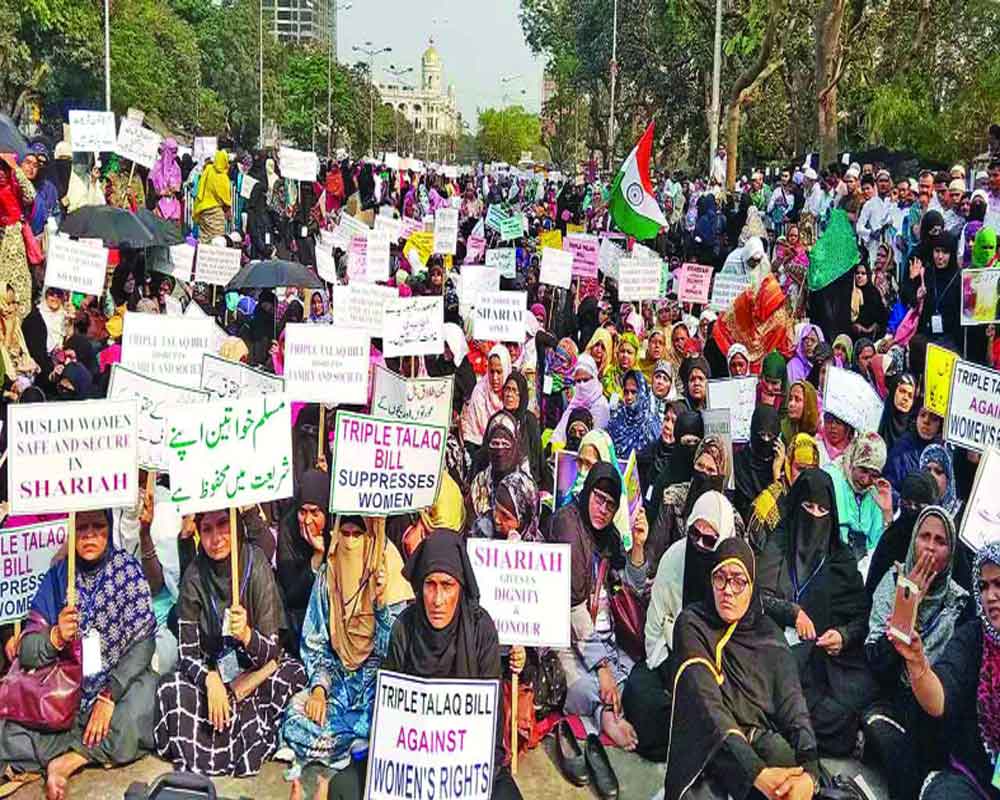In spite of our nation’s long history of religious and cultural tolerance, there are misguided elements that seek to damage its social fabric
It stands well established that the trajectory of growth and progress of any nation could be traversed successfully only on the solid foundation of social cohesion and religious amity — depending upon the religious, cultural and demographic composition. Every conscious citizen realises its criticality in the case of India. It is globally acknowledged that India is confidently marching ahead; its pace, determination and commitment often suffer avoidable impediments caused by misguided elements that attempt to exploit human sensitivities to create distrust and differences among communities. It becomes more acute when disruptive tendencies overtake sensible ways meant to resolve these differences. A shortsighted approach to petty gains overshadows national interests. There are umpteen instances in post-Independence India that led to the loss of human life, property and socio-cultural cohesion only because of triggers pressed in by vested interests. It is indeed astonishing that it happens in a nation that has taught freedom fighters of innumerable countries how to protest democratically. Luminaries like Martin Luther King Jr and Nelson Mandela were guided by Gandhian interpretation of Satyagrah. And they achieved their goals, discarding every form of violence and ensuring that no inconvenience was inflicted upon anyone.
One would like serious independent studies conducted by established and equipped institutions on, say, how much avoidable loss India — and common people, including children — suffered on various counts in the Shaheen Bagh and farmers’ protests. And what did the agitators gain? Was this approach really necessary in an acculturated society? We, who proudly claim to be heirs to the great dialogical tradition, have yet to learn how to take recourse to dialogue and even Satyagrah, if necessary, and resolve issues amicably. How much unnecessary burden was cast on national resources, and damage inflicted on mutual trust and social harmony, consequent to the passage of the triple talaq Act? The practice is banned in more than 20 countries, including Pakistan and Malaysia. Globally, progressive Muslims despise it. Last August, it was pointed out that after the Act was passed, divorce cases in the community dropped by more than 80 per cent! Even those who were initially misled must now acknowledge that it was a much-needed, though delayed, initiative that has benefited not only the community, but the nation as a whole. Imagine the measure of goodwill that a statement from prominent members of civil society, appreciating the huge reduction in triple talaq cases, could generate in the country.
One would like politicians of all hues to come together — and let people know about it — on issues that bring happiness to women, children and families, strengthen family bonds and take these to a higher level of mutual respect and trust. Similarly, the hijab issue has been blown out of proportion. A number of girls could not appear in Class X and XII Board exams in Karnataka because their parents wouldn’t heed the Karnataka High court’s unequivocal judgment. I headed a Regional Institute of Education in Bhopal from 1977 for 11 years. A CBSE-affiliated school, offering graduate, PG and doctoral-level programmes in teacher education, was part of my charge. We never faced any issue regarding the prescribed uniform in the school, nor in the higher classes where more than 70 per cent students were girls. I fondly recall converting one of the boys hostel to an additional girls hostel as their number was increasing fast. To me, the hijab issue is a contrived strategy of those interested in destabilising the nation’s social fabric. To them, it hardly matters that because of them, young children who were all along studying amicably with their peers, have suddenly been thrust into a conflict situation. Unfortunately, even certain political parties that are struggling for survival have plunged into the fray. Such elements try their best to give a communal colour to every initiative that could help enhance social cohesion and religious amity.
Most of such disruptions are launched in the name of “protecting the secular fabric of India, as enshrined in the Constitution”. One must remember that secularism — equal respect for all religions — is an integral part of the ancient Indian philosophical comprehension and cultural tradition. The founding fathers of our Constitution did not find it necessary to include any mention of this term, which is grossly and regularly misinterpreted by vested interests. It was introduced in the Preamble by a Government which imposed Emergency, put the entire Opposition behind bars, suspended fundamental rights and lost all legitimacy. Changing the Preamble was indeed a violation of the very spirit of the Constitution. It was certainly disrespectful to the illustrious luminaries who framed our Constitution, convinced that equal respect for all religions was deeply ingrained in the psyche of every Indian.
India shall never give up its traditional belief that all religions are equal; their final aim is the same. Also, that people have to be good adherents of their faith and good human beings. Problems arise when claims are made that “my truth is the only truth, and everyone else must agree to it”. It will not work in the third decade of the 21st century; it’s not working in any country.
(The author works in education, social cohesion and religious amity. The views expressed are personal.)


























